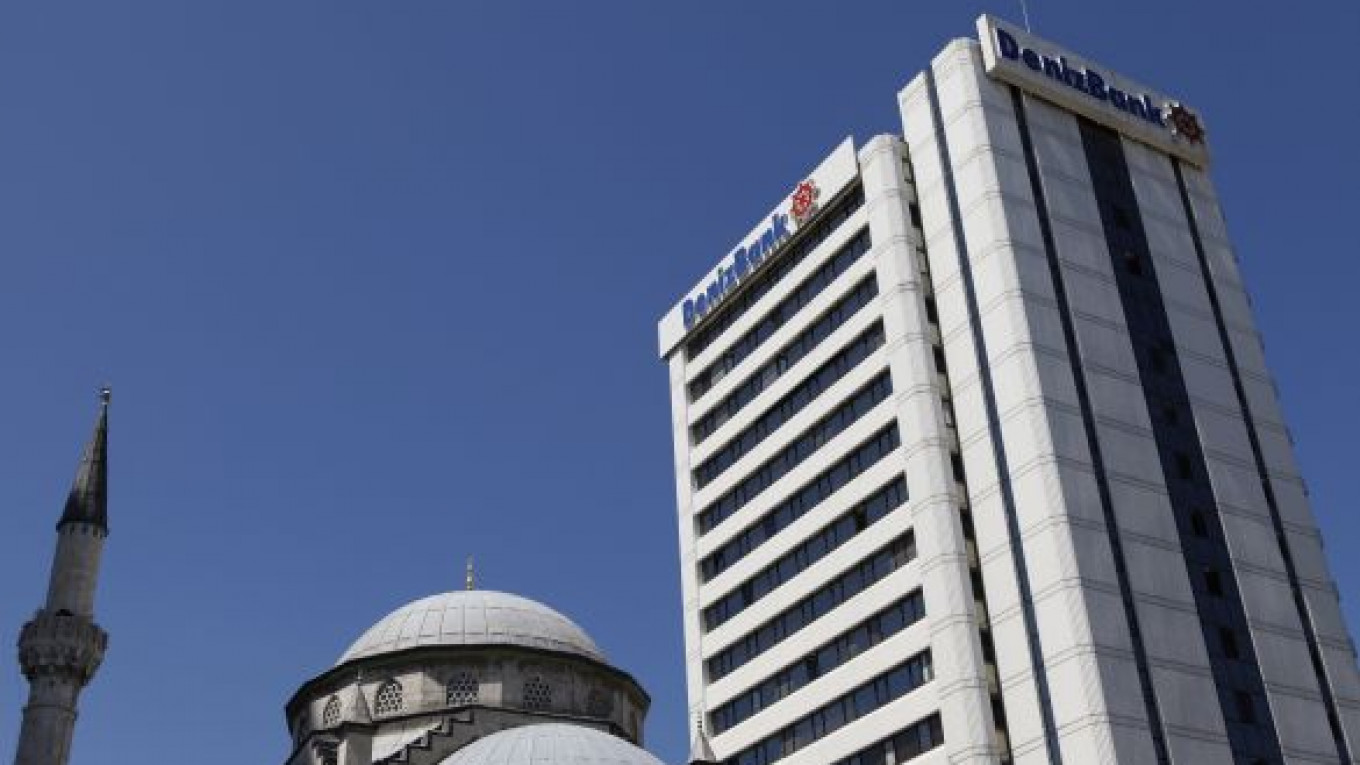Sberbank is building a banking platform based on over $4 billion of purchases in Eastern Europe and Turkey to facilitate new acquisitions across the continent, according to the head of the lender’s international business.
In the meantime, Russia’s biggest financial institution is taking a two-year break from snapping up the assets of banks suffering in Europe’s financial turmoil, having announced the $3.5 billion purchase of Turkey’s DenizBank from the troubled Franco-Belgian lender Dexia last month.
“In the near future, we are not concentrating on acquisitions but on creating a good banking platform,” said Sberbank deputy chairman Sergei Gorkov in a recent interview. “We waited for the food; now we have to eat it.”
But he added that the process of consolidation, which will involve developing services and products tailored for the Eastern European market, would be a springboard for further growth.
“We have to create a platform for future acquisitions,” Gorkov said. He added that Sberbank could one day look at assets in Western Europe.
Head of Sberbank German Gref announced that a $661 million deal to buy the international arm of Austria’s Volksbank, VBI, had been closed in February. The DenizBank purchase will be closed this year.
The two deals have raised questions among analysts about the wisdom of a policy of rapid foreign expansion, but Sberbank has committed to raising its international profile. Five percent of net profits and assets should come from outside Russia by 2014, according to the bank’s strategy.
Alongside Turkey, the Polish market has also been a focus of Sberbank. Gorkov said that no imminent developments in Poland were expected, but that “it continues to be an interesting market.”
Much has been made of the former Soviet Union’s savings bank’s move abroad, particularly in the direction of Europe’s financial heartland. But Gorkov maintained that Sberbank’s concentration was on exploiting regional links with Russia.
DenizBank was appealing because of Turkey’s ties to Russia, especially the 4 million Russian tourists who visit the country every year, he said. DenizBank’s network is particularly concentrated on the southern coast, where the resort towns most frequented by Russians are clustered.
“We are planning to create a special program to support tourist companies,” Gorkov said.
Unlike with VBI, which will be renamed Sberbank, a decision about abandoning the DenizBank name has not been made yet. The DenizBank brand dates back to the 1930s.
Gorkov said that Sberbank’s foreign acquisitions do not lead to a wholesale relocation of Russian managers. There are only 10 Russian managers working on the ground with VBI at the moment, he said, and a similar “soft politics” approach will be used at DenizBank.
“We don’t see the point of putting Russian people in as managers,” Gorkov said. “Not many Russian managers have experience working on the international market, particularly in commercial banks.”
A Message from The Moscow Times:
Dear readers,
We are facing unprecedented challenges. Russia's Prosecutor General's Office has designated The Moscow Times as an "undesirable" organization, criminalizing our work and putting our staff at risk of prosecution. This follows our earlier unjust labeling as a "foreign agent."
These actions are direct attempts to silence independent journalism in Russia. The authorities claim our work "discredits the decisions of the Russian leadership." We see things differently: we strive to provide accurate, unbiased reporting on Russia.
We, the journalists of The Moscow Times, refuse to be silenced. But to continue our work, we need your help.
Your support, no matter how small, makes a world of difference. If you can, please support us monthly starting from just $2. It's quick to set up, and every contribution makes a significant impact.
By supporting The Moscow Times, you're defending open, independent journalism in the face of repression. Thank you for standing with us.
Remind me later.







